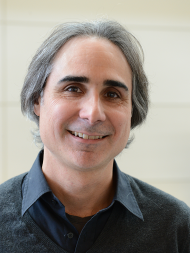Don’t miss the latest from Penn IUR. Subscribe to Urban Link.
Providing expert commentary on urban topics and highlighting Penn IUR's research in the context of pressing urban issues.

Daniel Campo is an urbanist and Associate Professor and Chair of the Department of Graduate Built Environment Studies in the School of Architecture and Planning at Morgan State University in Baltimore, Maryland. He is also the Chair of Design and Planning. He also serves as the Director of Morgan’s Graduate Program in City and Regional Planning. He is the author of Postindustrial DIY: Recovering American Rustbelt Icons (Fordham University Press, forthcoming 2023) and The Accidental Playground: Brooklyn Waterfront Narratives of the Undesigned and Unplanned (Fordham University Press, 2013). Possessing diverse research interests, he has also written articles about urban design and development, public space studies, urban parks, historic preservation, history of the built environment, downtown revitalization, waterfront studies and public art. The recipient of several awards and distinctions, he earned a National Endowment for the Humanities Research Fellowship (2010-11) and was recognized as Morgan State University’s most outstanding scholar in 2015. The significance of his research has also been noted by the New York Times, New Yorker, Planning Magazine, Citylab, Next City, Urban Omnibus and multiple National Public Radio affiliate stations. His interdisciplinary creative work and advocacy include his investigations as part of the Chance Ecologies Public Art Project and contributions to diverse organizations including AIA Baltimore and the North Brooklyn Parks Alliance. He holds a Ph.D. in city planning from the University of Pennsylvania and a Master of Urban Planning from Hunter College and was previously a planner for the New York City Department of City Planning.
At Morgan State, Dr. Campo serves as the principal investigator of its suite of waterfront studies focusing on South Baltimore working in collaboration with the Maryland Port Administration and the University of Maryland Center for Environmental Studies. He is also the lead faculty member of the Joint MIT-MSU City Planning Initiative. His research in postindustrial urbanism often provides for lively subject matter in the courses he teaches, including Planning and Designing the New Urban Waterfront, History of City and Regional Planning and planning studios. When not working, Dr. Campo is likely exploring a city or enjoying urban life.
Providing expert commentary on urban topics and highlighting Penn IUR's research in the context of pressing urban issues.